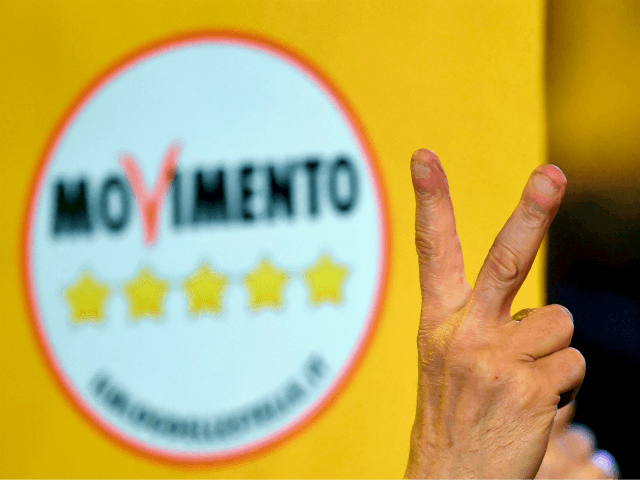In what is being called “the mother of all anti-establishment votes,” populist-nationalist parties hammered parties identified as being part of the old guard in Italian elections Sunday, radically altering Italy’s political landscape.
The anti-establishment 5-Star Movement emerged as the biggest party in both Houses of Parliament while the anti-immigration League has taken over from Berlusconi’s Forza Italia as the largest single party on the political right.
The results will not be final until Monday evening, but exit polls point to a remarkable shift in Italian politics away from conventional parties to anti-establishment groups looking to shake up business as usual. The real victors were Luigi di Maio of the 5-Star Movement and Matteo Salvini of the League, in an election that saw voter turnout at over 73 percent of the voter population, essentially debunking forecasts of low turnout due to supposed indifference and disillusionment.
Perhaps the most significant force in the new Italian politics was the southern vote, with Di Maio’s 5-Star group taking nearly 50 percent of the vote in the area comprising Sicily, Campania, Puglia, Basilicata, and Calabria. The 5-Star Movement ran on a Euroskeptic platform, along with promises of transparency and an end to political corruption and careerism.
On the right, Berlusconi’s insistence on coalition leadership essentially “backfired” according to Italian analyses. Sunday saw an important internal reconfiguration of powers within the center-right coalition, from a group dominated by Berlusconi’s Forza Italia party to a bloc centered on the League, which only recently morphed from a small regional party into a national contender.
While in total votes the center-right group only gained some 2 percent over the elections of 2013, the internal shift is far more dramatic. The new League moved from 4 percent to 18.6 percent of the national vote—a jump of more than 400 percent—while Forza Italia fell from 21.5 percent to 13.5 percent.
If ballot projections are confirmed, leadership of the center-right coalition will pass to Salvini, meaning that he will also emerge as the coalition’s candidate for prime minister, replacing Antonio Tajani, whom Berlusconi has favored.
In absolute terms, the center-right coalition won the election with 37.5 percent of the vote as opposed to the 31.9 percent taken by the 5-Star Movement, which refused to enter a coalition with other parties. The combined center-left coalition, led by the PD, took only 23.1 percent of the vote, with three of its member parties taking less than one percent each.
Ridiculous attempts by the left to paint the elections as a battle between neo-Fascism and anti-Fascism essentially blew up in their face, as Italians marched on the polls with a clearer understanding of what was on offer than what political pundits were proposing. The actual “extreme right” finished miserably, with less than one percent of the vote.
As League leader Matteo Salvini said prior to the elections, if putting Italians first makes me xenophobic in some people’s minds, then so be it.
The ruling left of the PD, which has been characterized as an ostrich with its head in the sand, ignoring Italy’s migrant crisis on the one hand and its catastrophic economic predicament on the other, fell to its lowest level in decades, essentially confirming predictions of a “collapse” of the establishment left.
Follow Thomas D. Williams on Twitter Follow @tdwilliamsrome

COMMENTS
Please let us know if you're having issues with commenting.